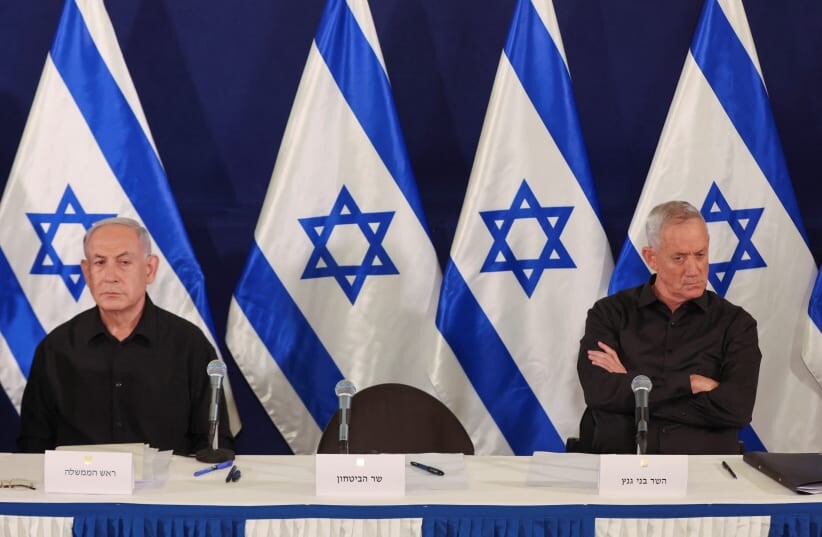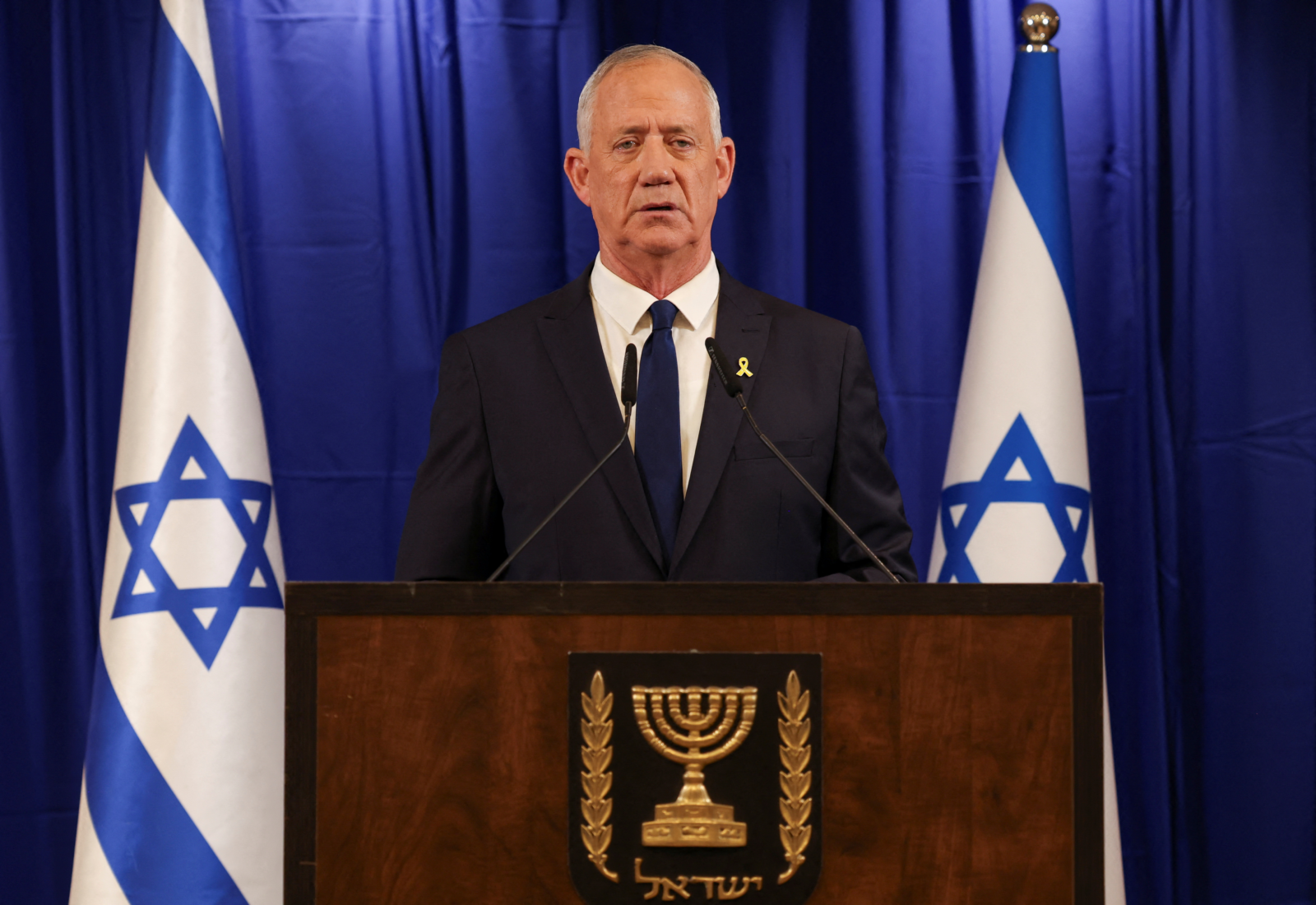Netanyahu dissolves war cabinet amid coalition turmoil over Gaza strategy
 Benjamin Netanyahu, left, and Benny Gantz at a press conference in Tel Aviv in October 2023 (AFP Photo)
Benjamin Netanyahu, left, and Benny Gantz at a press conference in Tel Aviv in October 2023 (AFP Photo)
Israeli Prime Minister Benjamin Netanyahu on Monday dissolved the six-member war cabinet, a move with significant political ramifications amid the ongoing conflict with Hamas in Gaza.
The dissolution follows the departure of centrist former general Benny Gantz and his partner Gadi Eisenkot, who both left the government last week, citing Netanyahu’s failure to form a comprehensive strategy for the Gaza war.
What was war cabinet’s purpose?
The war cabinet was initially formed in October as part of a national unity government when Gantz joined Netanyahu. It included Netanyahu, Gantz, Defence Minister Yoav Gallant, Strategic Affairs Minister Ron Dermer and Aryeh Deri, head of the religious Shas party, as an observer.

The cabinet aimed to unify efforts and strategize during the Gaza conflict.
Why did Netanyahu dissolve the cabinet?
With Gantz and Eisenkot’s departure, Netanyahu declared the cabinet unnecessary.
The cabinet was in the coalition agreement with Gantz, at his request. As soon as Gantz left – there is no need for a cabinet anymore
Israeli President Benjamin Netanyahu

Netanyahu faced pressure from his far-right coalition partners, Finance Minister Bezalel Smotrich and National Security Minister Itamar Ben-Gvir, who demanded inclusion in the war cabinet.
They argued Israel must continue its aggressive stance in Gaza despite international calls for restraint, particularly from the United States.

However, Netanyahu has resisted these demands, opting instead to consult with a smaller group of ministers, including Defense Minister Yoav Gallant and Israel’s Ambassador to the U.S. Ron Dermer.
Netanyahu’s deliberate snub to far-right allies
The Israeli leader’s decision to dissolve the war cabinet and sideline his nationalist-religious partners appears to be a strategic move to maintain control over military decisions and avoid further strain with international allies.
We have a country with an army and not an army with a country
Israeli President Benjamin Netanyahu
Despite ongoing calls for a new war cabinet from hardline elements within his coalition, Netanyahu has emphasized that the war cabinet’s dissolution was because of its basis in the agreement with Gantz – which is now void.

Reports suggest that Netanyahu intends to consult Gallant, Dermer, and possibly Deri privately, although such consultations would not have formal legal weight.
Implications for military strategy, political landscape
The dissolution is not expected to impact the conflict’s military strategy significantly, as key decisions will now revert to the security cabinet.
However, it underscores the internal political tensions within Netanyahu’s government and his increasing consolidation of power amid the war.
In order to reach the goal of eliminating the capabilities of Hamas, I made decisions that were not always acceptable to the military echelon
Israeli President Benjamin Netanyahu
Dual pressures from coalition and international partners
This development comes as Netanyahu faces dual pressures: the need to address the prolonged conflict in Gaza and the demands of his coalition partners.
Meanwhile, international partners, notably the United States, continue to supply arms to Israel while advocating for increased aid shipments to Gaza and cautioning against a full ground invasion of Rafah.
The Netanyahu government failed to present a post-war plan for the besieged and bombarded Palestinian territory, an obstacle to true victory.
Benny Gantz

His departure has intensified calls for an election, with Netanyahu under severe pressure to negotiate a deal with Hamas to secure the release of captives held in Gaza.



